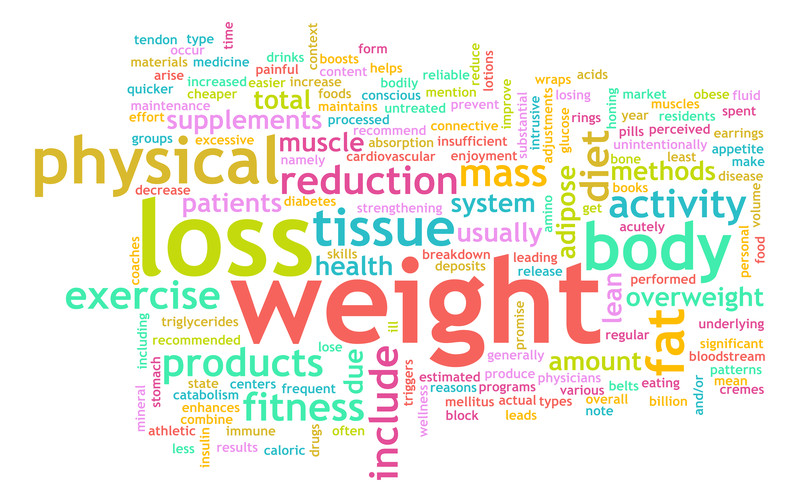Weight loss through diet changes can improve sleep at any body weight, says Penn study
Weight loss due to dietary changes can improve sleepiness at any weight, says a study published by researchers from the Perelman School of Medicine at the University of Pennsylvania this month in the journal Sleep. The findings offer new insights into how weight fluctuations impact numerous aspects of sleep independent of body weight.
Previous studies have linked obesity with persistent sleepiness, lack of energy during the day, and poor sleep quality, all of which can be successfully combatted with weight loss treatment. But until now, researchers have known little about the link between excessive weight, poor dietary habits, and sleep/wake abnormalities.
Nearly 185 million adults and 24 million children in the United States are overweight or obese. In Philadelphia, an estimated 68 percent of adults are overweight or obese. Beyond impaired cognitive function, poor sleep is associated with a host of chronic health problems including depression, obesity, and hypertension. Additionally, the Centers for Disease Control and Prevention estimates that 50 to 70 million U.S. adults experience sleep or wakefulness disorders.
In the current research, obesity was studied using diet-induced obese mice. Half the mice were randomly chosen to receive regular chow (RC) while the other mice were fed a high-fat diet (HFD, more than three times higher in fat content) for eight weeks. At the end of that period, some of the mice were switched to the alternative diet for one week, causing newly-fed HFD mice to gain weight and newly-fed RC mice to lose weight, while the rest of the mice continued to consume their current diet.
After the ninth week, mice maintained on HFD weighed 30 percent more, slept more than one hour longer per day, and suffered from increased wake fragmentation (frequently slipping into sleep) compared to mice maintained on RC. The “diet switch” groups, however, had similar body weight at week nine, but completely different sleep/wake profiles when compared to each other.
“Our findings suggest body weight is a less important factor than changes in weight for regulating sleepiness,” said the study’s lead author, Isaac Perron, a PhD student in Neuroscience at the University of Pennsylvania. “Diet-induced obese mice that ate a regular chow diet for only one week showed the same sleep/wake profile as mice that ate a regular chow diet for nine weeks.”
 The findings have implications for the lean population as well, since mice consuming the low-fat diet for eight weeks followed by only one week of HFD had similar sleep as those eating a HFD for nine weeks.
The findings have implications for the lean population as well, since mice consuming the low-fat diet for eight weeks followed by only one week of HFD had similar sleep as those eating a HFD for nine weeks.
“The diet consumed during the final week was key to driving the sleep effects, independent of the starting body weight,” said Perron. “If you’re overweight and often feel tired, you may not need to lose all the weight to improve sleep, but rather just beginning to lose that excess weight may improve your sleep abnormalities and wake impairments.”
As individuals pursue these dietary changes, they may start to feel more awake during the day and be motivated to live a healthier lifestyle.
“This study has mapped a completely novel food and sleep interaction,” said co-author Sigrid Veasey, MD, DABSM, a professor in the division of Sleep Medicine and a member of Penn’s Center for Sleep and Circadian Neurobiology.
“That changing to a healthier diet can acutely improve alertness and sleep, is extremely important and certainly an interaction to now test in humans.”
Allan I. Pack, also from Penn, is a co-author on the study.
###
The work was funded by the T32 Sleep Training Grant (HL07953) and Research Program Project Grant (P01-AG017628).
Penn Medicine is one of the world’s leading academic medical centers, dedicated to the related missions of medical education, biomedical research, and excellence in patient care. Penn Medicine consists of the Raymond and Ruth Perelman School of Medicine at the University of Pennsylvania (founded in 1765 as the nation’s first medical school) and the University of Pennsylvania Health System, which together form a $5.3 billion enterprise.
The Perelman School of Medicine has been ranked among the top five medical schools in the United States for the past 17 years, according to U.S. News & World Report’s survey of research-oriented medical schools. The School is consistently among the nation’s top recipients of funding from the National Institutes of Health, with $409 million awarded in the 2014 fiscal year.
The University of Pennsylvania Health System’s patient care facilities include: The Hospital of the University of Pennsylvania—recognized as one of the nation’s top “Honor Roll” hospitals by U.S. News & World Report; Penn Presbyterian Medical Center; Chester County Hospital; Penn Wissahickon Hospice; and Pennsylvania Hospital—the nation’s first hospital, founded in 1751. Additional affiliated inpatient care facilities and services throughout the Philadelphia region include Chestnut Hill Hospital and Good Shepherd Penn Partners, a partnership between Good Shepherd Rehabilitation Network and Penn Medicine.
Penn Medicine is committed to improving lives and health through a variety of community-based programs and activities. In fiscal year 2014, Penn Medicine provided $771 million to benefit our community.
###
Greg Richter
.(JavaScript must be enabled to view this email address)
215-614-1937